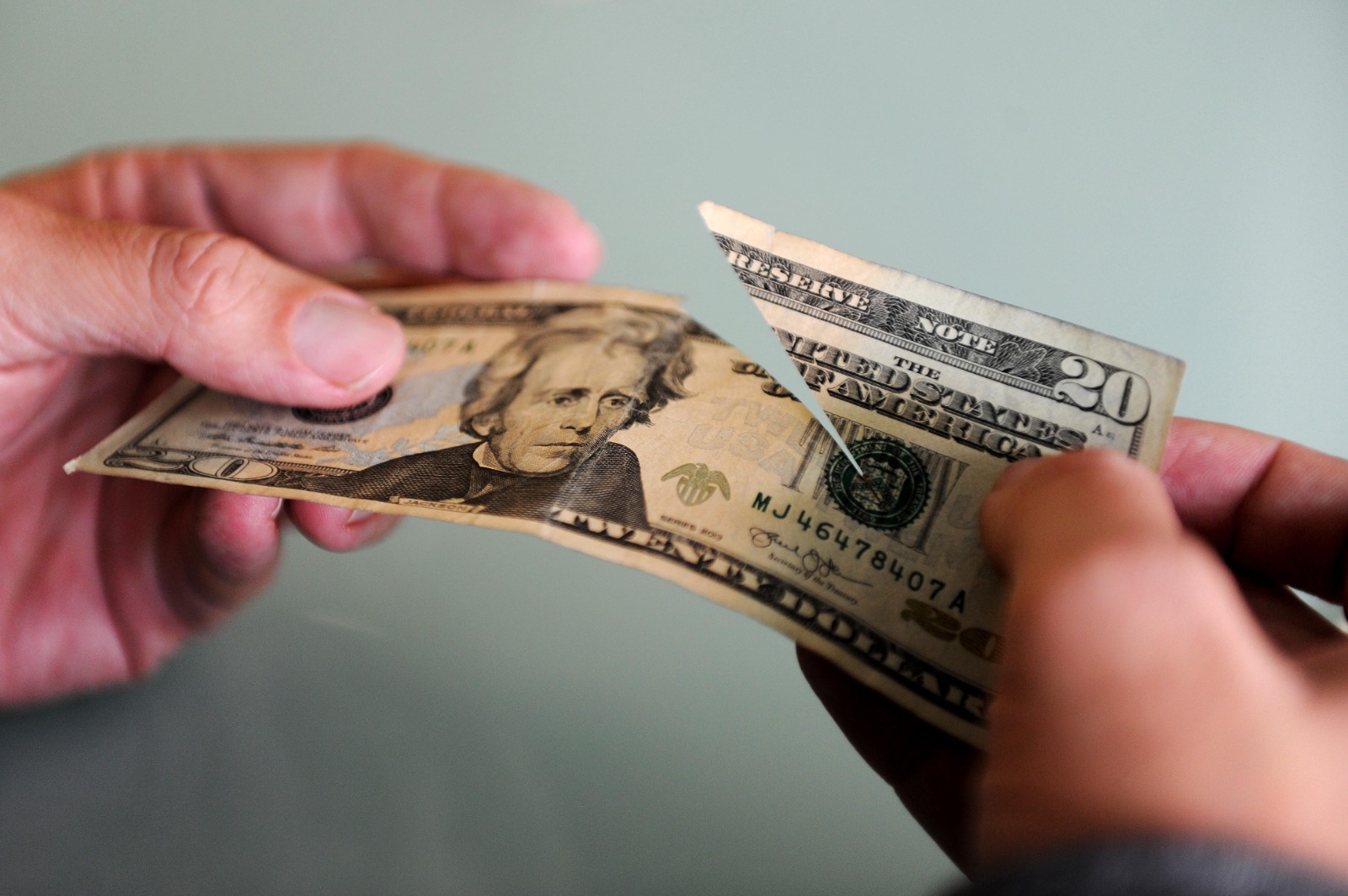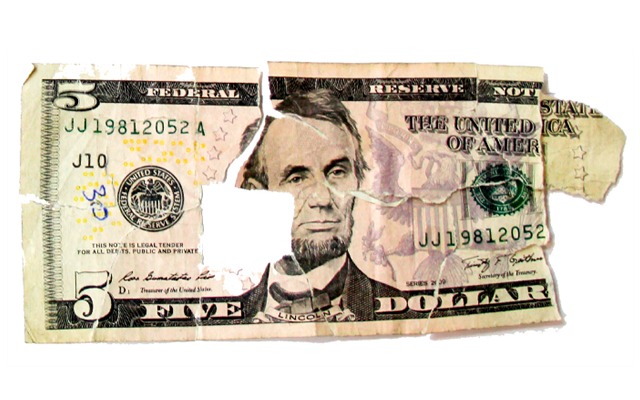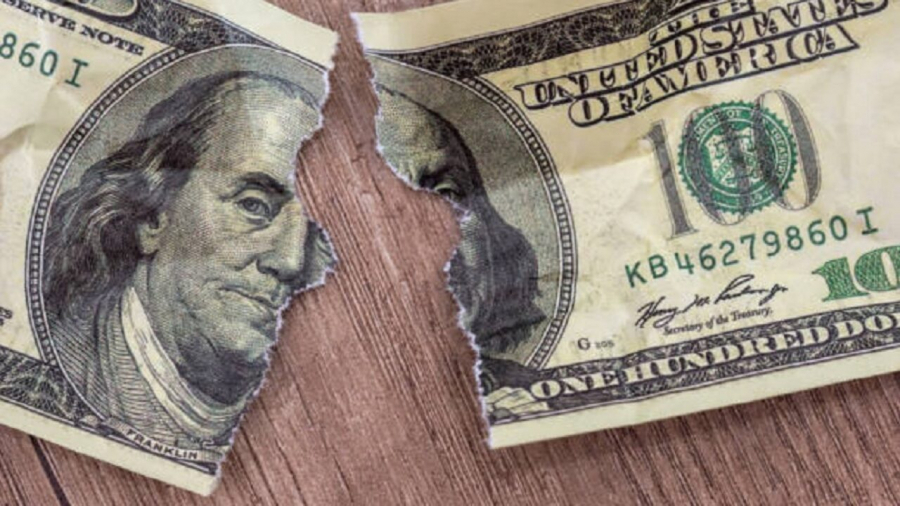CASE "A" (One piece only).
When the portion of the banknote measures more than half of its original size, such portion must be formed by a single piece and must also have one of the two serial and number imprints legible.
This means that, if the torn bill measures more than half and has its denomination visible, you can freely go to a bank within the salvadoran system and they are obliged to exchange the same denomination.

CASE "B" (Two or more portions)
When the banknote has one or more complete cuts from edge to edge, but those joined parts measure more than half the original size of the banknote and also clearly identify the equality of its two serial and number imprints, the banknote may be exchanged at a bank.

So, if you have a torn banknote, do not write it off as lost, the Banco Central de Reserva allows its exchange as long as the above two conditions are met.
The bills must not be: Be folded, wet, stained, stained, torn, stapled, crumpled, squeezed and perforated.
In addition, the Banco Central de Reserva of El Salvador urges all citizens to take care of the banknotes, which have a cost for the country; because if you deteriorate a banknote, the institution is obliged to withdraw it from circulation and replace it before it completes its life cycle.
Translated by: A.M
 English
English  Español
Español 
